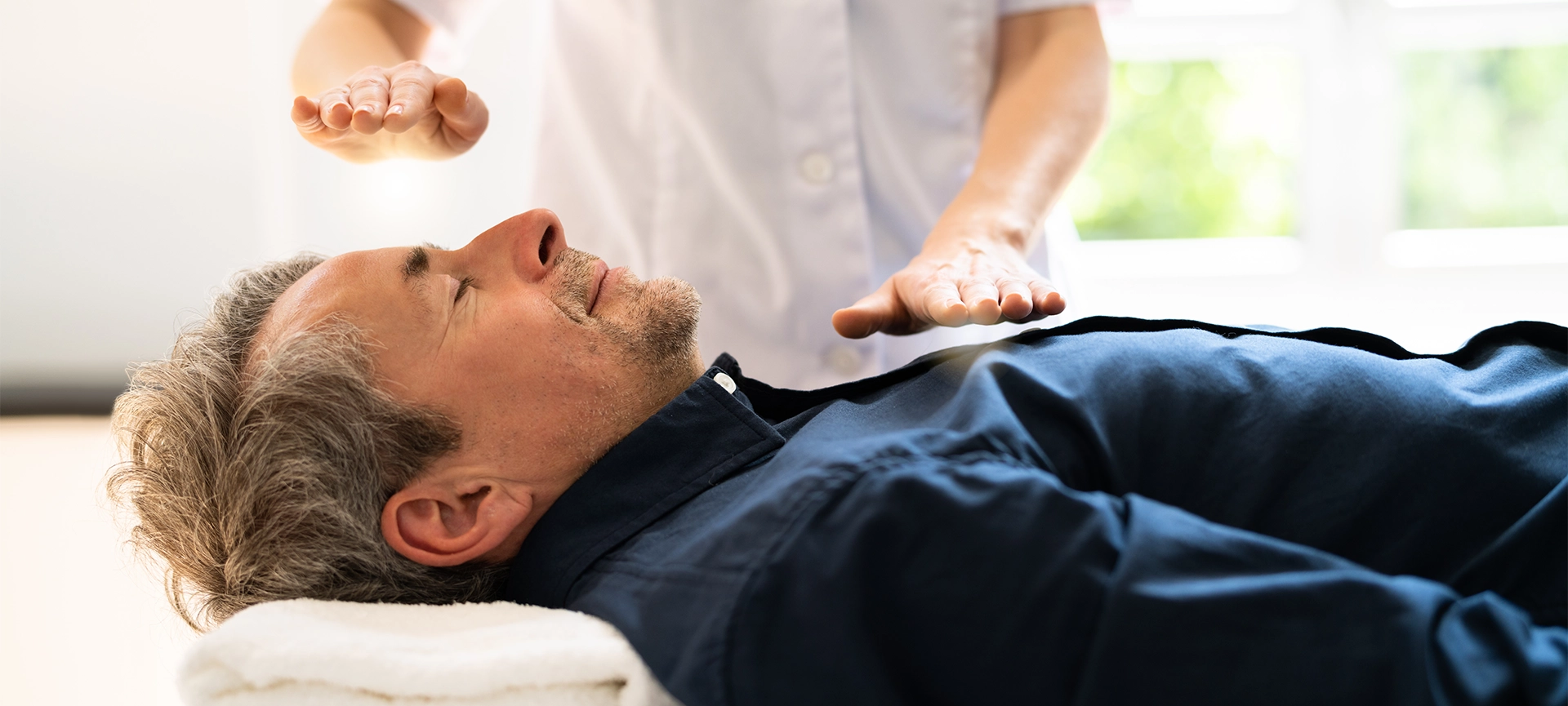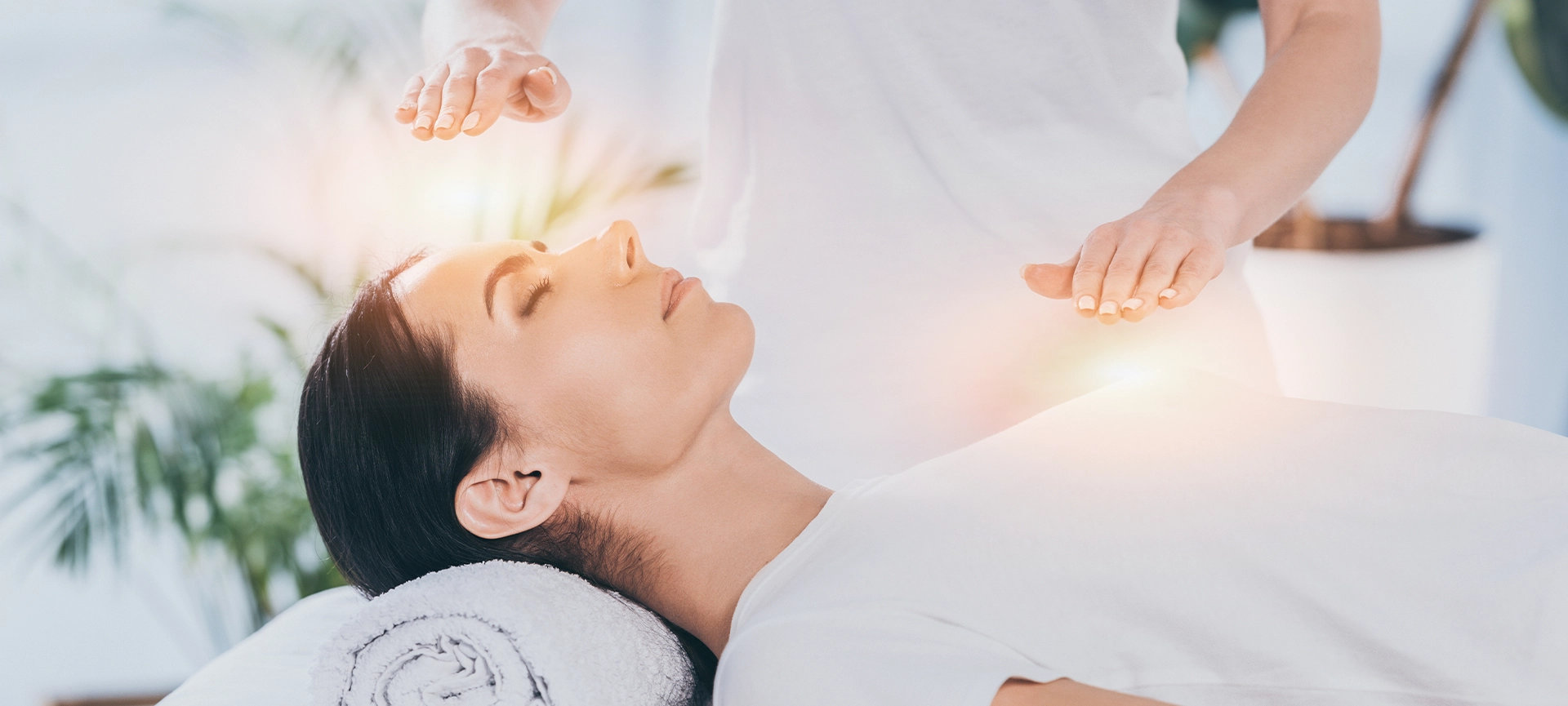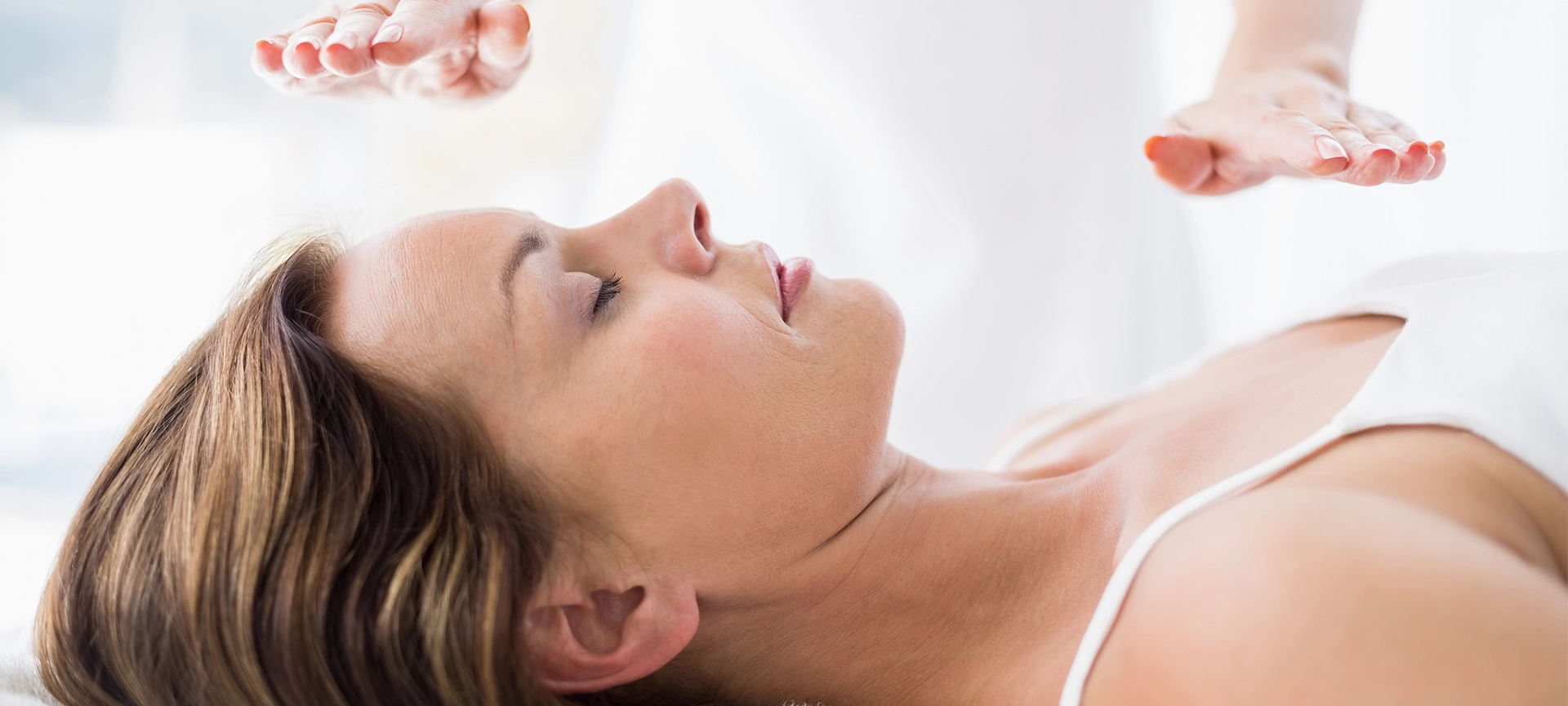Recovery from addiction is not just about breaking free from substances. True healing involves repairing emotional wounds, building resilience, and fostering inner peace. While evidence-based therapies like CBT and DBT remain the foundation of recovery programs, complementary practices like Reiki and meditation can play a powerful supporting role.
At Addiction Rehab Toronto, we recognize that emotional healing requires a whole-person approach. Here’s how Reiki and meditation contribute to emotional well-being and why they are valuable tools during addiction recovery.
Related Article: Exploring Evidence-Based Addiction Therapy in Woodbridge: CBT, DBT, and More
What Is Reiki?
Reiki is a gentle, non-invasive energy healing practice that originated in Japan. It involves the practitioner placing their hands lightly on or just above the client’s body to promote balance, relaxation, and emotional release.
Reiki is based on the concept that emotional and physical issues are connected to disruptions in the body’s energy flow. By restoring this balance, clients often experience:
- Reduced stress
- Emotional clarity
- Decreased anxiety
- Improved mood and self-awareness
Reiki sessions are calming and meditative, allowing the body and mind to enter a state where deep healing can occur.
What Is Meditation?
Meditation is the practice of training attention and awareness to achieve mental clarity and emotional calmness. In the context of recovery, meditation helps clients:
- Become more aware of thoughts and emotions
- Respond rather than react to cravings or triggers
- Build resilience to stress and negative thinking patterns
Types of meditation used at Addiction Rehab Toronto include:
- Mindfulness meditation
- Guided imagery
- Breathing exercises
- Loving-kindness (metta) meditation
Each technique is adapted to the individual, making meditation accessible even for beginners.
Related Article: Is the 12-Step Model Outdated? Exploring Modern Addiction Therapies
How Reiki and Meditation Complement Evidence-Based Therapies
While CBT, DBT, and other talk therapies focus on identifying and changing harmful thought patterns, Reiki and meditation address the emotional and physiological stress stored in the body.
Together, they:
- Accelerate emotional regulation: Helping clients feel calmer during therapy sessions
- Enhance self-awareness: Allowing deeper reflection and personal insights
- Support trauma healing: Creating a safe space for emotions that may be difficult to verbalize
- Build stress management skills: Making it easier to handle life’s challenges without relapse
Integrating these practices creates a more complete healing environment, addressing both conscious and subconscious layers of recovery.
Related Article: Trauma-Informed Care in Non-12-Step Rehab: A Compassion-First Approach

Emotional Benefits of Reiki in Addiction Recovery
While Reiki is known for its calming effects, its emotional benefits during addiction recovery are equally powerful. Here’s how this gentle practice supports deeper emotional healing as you rebuild your life.
- Release of Suppressed Emotions
- Many individuals entering recovery have years of suppressed anger, grief, shame, or fear. Reiki can help release these emotions gently, making space for healthier coping mechanisms.
- Reduction of Anxiety and Restlessness
- Withdrawal and early sobriety often come with intense anxiety. Reiki promotes deep relaxation, calming the nervous system without medication.
- Support for Self-Compassion
- Addiction often erodes self-esteem. Reiki sessions foster a sense of self-worth and encourage a kinder relationship with oneself.
- Physical Relief
- Physical tension and pain can mirror emotional pain. Reiki addresses both, helping clients reconnect with their bodies in a positive way.
Emotional Benefits of Meditation in Addiction Recovery
Meditation is more than just sitting quietly; it’s an active tool for reshaping emotional patterns and enhancing mental strength. Here’s how meditation supports emotional stability and self-awareness during the recovery journey.
- Improved Emotional Regulation
- Meditation strengthens the brain’s ability to observe emotions without being overwhelmed, a vital skill for avoiding relapse.
- Greater Resilience to Triggers
- Regular practice helps individuals respond to cravings, stress, or conflict with more calm and clarity.
- Enhanced Mindfulness in Daily Life
- Mindfulness reduces impulsivity, promotes gratitude, and helps clients savour positive experiences without needing substances.
- Building a New Identity
- Meditation supports clients in seeing themselves not as “addicts,” but as evolving, capable individuals.
What to Expect from Reiki and Meditation Sessions at Addiction Rehab Toronto
Our approach is always personalized, but here’s a general idea:
- Reiki sessions: Conducted in a quiet, comfortable space. Clients lie fully clothed on a treatment table. Sessions last about 45–60 minutes and focus on relaxation and emotional release.
- Meditation sessions: Led by trained practitioners, either one-on-one or in small groups. Techniques are introduced gradually, allowing clients to find what resonates best.
There is no “right” or “wrong” way to experience these therapies. The focus is on creating space for healing at your own pace.

Why Holistic Healing Matters in Recovery
Substance use disorders rarely exist in a vacuum. They are often rooted in:
- Past trauma
- Chronic stress
- Emotional neglect
- Mental health conditions like anxiety or depression
By addressing emotional wounds through multiple pathways, including energy work and mindfulness practices, clients build a more solid foundation for lasting recovery.
Holistic healing:
- Reduces the risk of relapse
- Increases emotional intelligence
- Strengthens the mind-body connection
- Encourages lifelong habits that support mental wellness
Why Choose Addiction Rehab Toronto for Holistic Addiction Recovery?
At Addiction Rehab Toronto, we understand that no two journeys are the same. That’s why our programs combine:
- Evidence-based therapies (CBT, DBT, motivational interviewing)
- Complementary therapies (Reiki, meditation, fitness, nutrition)
- Family support to heal relationships
- Aftercare planning for continued success after treatment
We are committed to treating the whole person, not just the symptoms of addiction. We believe that emotional healing is not a luxury but a necessity for lasting change.
Healing Beyond Sobriety
Recovery is about more than putting down the substance. It’s about picking up the tools for emotional resilience, inner peace, and self-love.
Reiki and meditation are powerful allies in this process, helping clients at Addiction Rehab Toronto heal deeply and sustainably.
If you’re ready to experience a new level of healing, reach out to us today. Your path to lasting wellness starts here.







